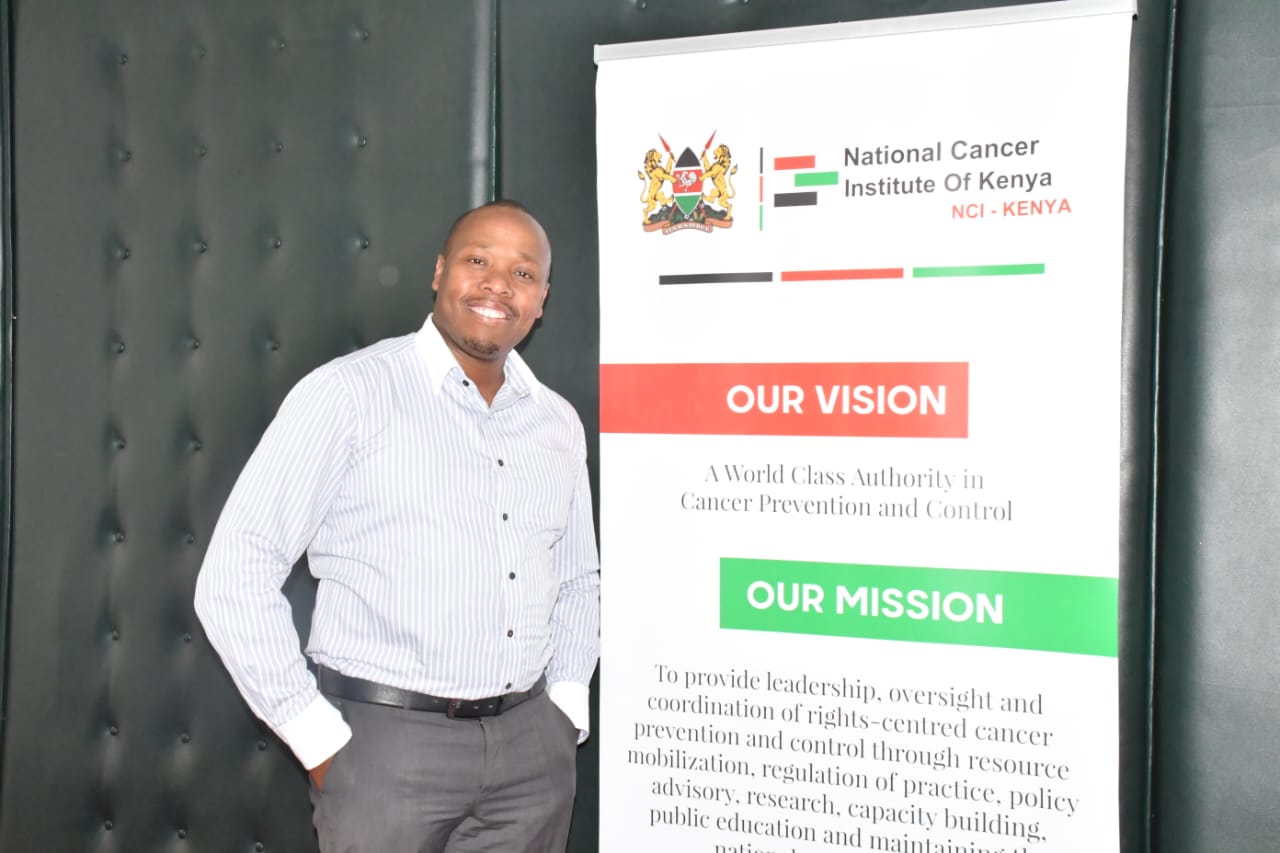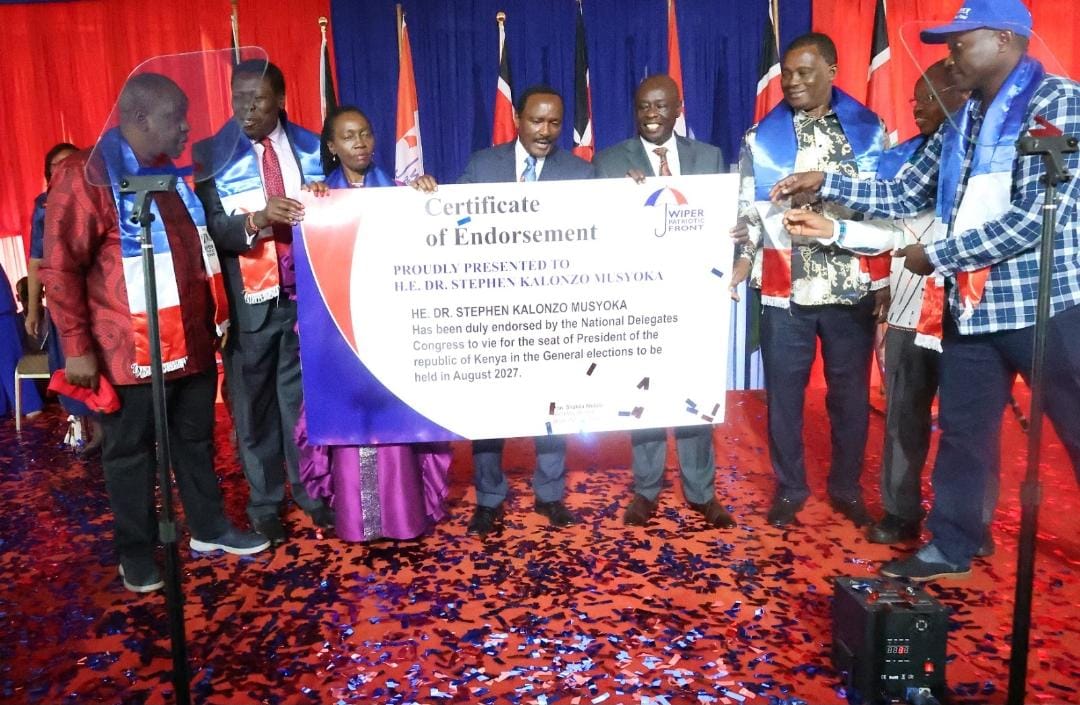In the early 2010s, cancer ranked among Kenya’s most silent and devastating public health crises. Specialized facilities were scarce, diagnoses often came too late, and for most families, treatment was either inaccessible or unaffordable. For many, a cancer diagnosis felt like a final verdict—not because the disease could not be treated, but because the systems to fight it were underfunded, fragmented, and beyond reach.
A decade later, Kenya stands out as one of Africa’s most promising success stories in the battle against cancer—earning recognition from the World Health Organization as the continent’s leading treatment hub for breast cancer. At the center of this transformation is Dr. Elias Melly, Chief Executive Officer of the National Cancer Institute of Kenya (NCI-K).
Dr. Melly’s approach is shaped by an exceptional academic and professional journey. A trained medical doctor, he pursued advanced studies at some of the world’s leading institutions, including Stanford University, the University of Minnesota, and Indiana University. These experiences gave him firsthand exposure to world-class health systems, advanced research environments, and progressive policy models.
Rather than remaining abroad, Dr. Melly returned to Kenya with a clear purpose: to apply this global knowledge to local challenges. “The real measure of my education is not how far I can travel,” he reflects, “but how far I can help my people travel—from fear to hope, from illness to recovery.”
Under his leadership, NCI-K has evolved from a national agency into a regional hub for cancer innovation, policy, and coordination.
One of Dr. Melly’s most significant accomplishments has been the decentralization of cancer care. Just ten years ago, only a handful of urban hospitals offered specialized oncology services. Patients in rural areas often faced long, expensive journeys to access care—sometimes selling property or leaving jobs for extended treatment in crowded city facilities.
Today, every county now has a cancer care program and regional cancer centres, each equipped with diagnostic technology, including CT scanners, making early detection and treatment more accessible than ever before. This nationwide reach has reduced both the physical and financial burden on patients and saved countless lives.
When Dr. Melly took over NCI-K, Kenya relied heavily on foreign datasets to guide its cancer strategy. This dependency often led to policies that did not align with the country’s specific needs. Determined to change course, he oversaw the creation of Kenya’s first comprehensive cancer database, housing local patient records, treatment outcomes, and epidemiological patterns.
The database has revolutionized cancer planning, ensuring that policy decisions are grounded in local realities. For the first time, cancer data is formally integrated into the national budget, shaping funding allocations and policy priorities. This resource has also informed the design of affordable cancer care packages under the Social Health Authority (SHA), ensuring treatment is a right for all Kenyans, not a privilege for a few.
Dr. Melly views cancer care as a continuum that begins with awareness and prevention. Through nationwide campaigns, he has encouraged millions to embrace early screening, dispelled dangerous myths, and worked to dismantle the stigma around diagnosis.
The results are tangible: early detection rates have improved significantly, and survival outcomes are steadily rising. Kenya’s top WHO ranking for breast cancer treatment in Africa stands as proof that effective public health messaging, paired with accessible services, changes lives.
Effective cancer care demands a wide range of specialists—oncologists, pathologists, radiologists, surgeons, nurses, counselors, and scientists. Recognizing this, Dr. Melly has made capacity building a priority.
As a part-time lecturer, he personally trains health workers in both technical excellence and compassionate patient care. He has also championed local research, funding Kenyan scientists and connecting them with international experts. This approach strengthens homegrown expertise and establishes Kenya as a credible research partner on the global stage.
In July, the National Cancer Institute hosted a successful National Cancer Summit and is looking forward to hosting a Global Cancer Summit in 2027, bringing together medical leaders, researchers, and policymakers from around the world. His goal is to forge deeper African–international partnerships in research, technology sharing, and treatment innovation.
“This is not about Kenya alone,” he emphasizes. “It’s about building a continental and global coalition to ensure cancer is fought with the same urgency everywhere.”
Despite remarkable progress, challenges persist. The high cost of advanced treatment still places a heavy burden on families, and certain cutting-edge therapies remain out of reach. For Dr. Melly, the emotional toll of losing patients despite all interventions remains one of the most difficult parts of the job.
Yet his resolve is unwavering. “Every survivor I meet reminds me why this fight matters,” he says. “Every life saved is a family kept whole, a dream kept alive.”
By blending global expertise with local insight, Dr. Melly has built a system that is responsive, sustainable, and deeply human-centered. Kenya’s cancer care revolution under his leadership is not just a national milestone—it is a model for how low- and middle-income countries can leapfrog systemic challenges and deliver world-class health solutions.
As cancer rates rise worldwide, especially in developing nations, Kenya’s approach offers both hope and a challenge: that with vision, investment, and collaboration, even the most entrenched public health battles can be won.







Leave a Reply